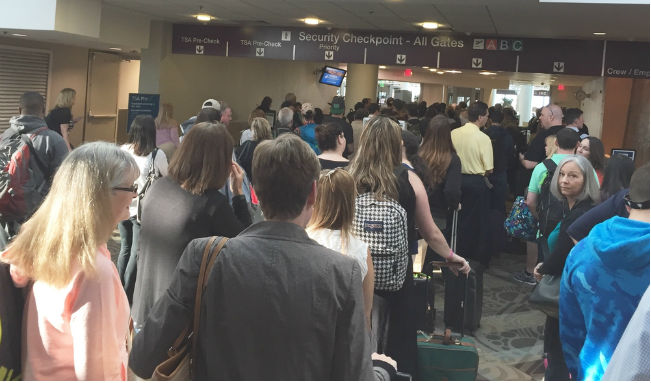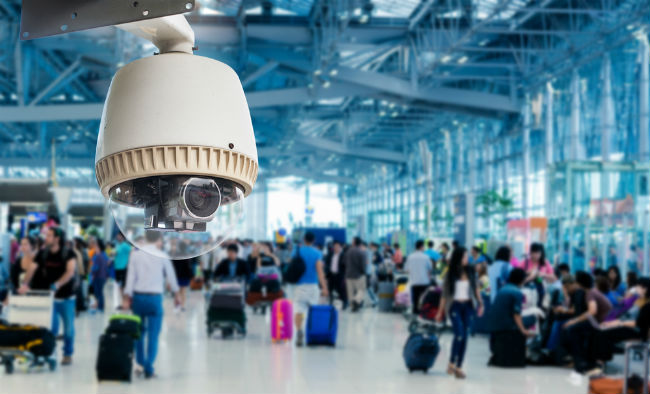
Israel’s Ben Gurion Airport, widely considered one of the safest in the world, doesn’t take security lightly. Approaching vehicles stop at a security checkpoint, where the driver exchanges a few words with the guard. Departing travelers, or travelers who seem nervous, are approached by security personnel and interviewed, usually for as little as a minute. Depending on the situation, the interview might result in a luggage or body search. And that’s just the visible security; plainclothes security and hidden surveillance cameras are everywhere, and any checked luggage is subject to pressure testing, CT scans, and X-rays.
What you won’t do at Ben Gurion is take off your shoes, make sure no stray coins are in your pockets, dump it all in a bin, and walk through a body scanner. In fact, most travelers can get from their car to their gate in less than half an hour. So why are we waiting in long lines here in the U.S.?
How We Should Protect An Airport
American impatience with the TSA is at an all-time high. Airports are beginning to throw the agency out of their terminals and institute their own security procedures. Delta recently installed “innovation lanes” at the Atlanta airport — recirculating bins and putting passengers through “stations” instead of making them take everything out of their pockets at once. It speeds up the process, but it’s still not effective.
The best security tool is to create “rings” of security around what you want to protect. You see this theory in action all the time if you go to a stadium or a concert, as you get checked at the parking lot, at the door, at the top of the stairs, and so on. They may only be looking for smuggled-in booze and fake tickets, but the idea is the same. With this structure, each ring reinforces the ones around it, double-checking whoever might have made it past the last person. American airports don’t have these rings. Instead, we get a bottleneck at the TSA checkpoint.
This bottleneck creates an enormous, slow-moving, easily accessible crowd, which isn’t ideal from a protection standpoint. It also causes slowing that can delay flights, a problem that has a domino effect across the system. Oh yeah, it doesn’t work either: In 2015, the TSA failed 95% of its tests. In fact, recently, a major gun-running operation was busted at the Atlanta airport after operating for months. Why? A baggage handler realized he was driven into the building without a security check, and could swap in any piece of luggage on the belt that he pleased.
In theory, there’s more to airport security than just the TSA officer, most of whom barely last a year in their post. But where technology is supposed to augment, or replace, humans, it’s falling down on the job.

New Techniques Aren’t Working
Take the TSA’s notorious body scanners. Supposedly the next generation of airport security, they turned out to be utterly useless. Canada has banned smiling in your passport photo because that alone can easily trip up facial recognition software, not that it matters because the software can barely tell Osama Bin Laden from Winona Ryder.
Even something as basic as a no-fly list was riddled with problems. For years, anybody with the name David Nelson struggled to get on a flight because it was added to the no-fly list. And yet, if you were on the list, a simple legal name change would get you off of it. As recently as 2005, something as simple as a bad credit score could keep you off a plane.
In short, what we put up with at airports is largely security theater. It’s designed to make travelers feel safe, but it doesn’t actually protect us, and it makes everything about the flying experience worse.
So How Can Travelers Get A Better Experience?
The main problem is that even when private contractors are used, they employ the same flawed system. Claims that private companies are better are mostly rooted in political belief, not genuine results. What’s really protecting our airports, it turns out, is our law enforcement system catching terrorists before they commit any dangerous acts.
As a traveler, the best thing to do is complain (and get pre-check ASAP!). Complain to airlines, complain to your Congressional representative, complain to anybody with the power to change things. The issue is bureaucratic inertia. A system was rushed into place in 2001 and has been assumed to be “good enough” ever since because there hasn’t been another 9/11. But the goal should be to maximize safety while keeping travel relatively hassle free. On that count, as of now, the TSA is failing.






